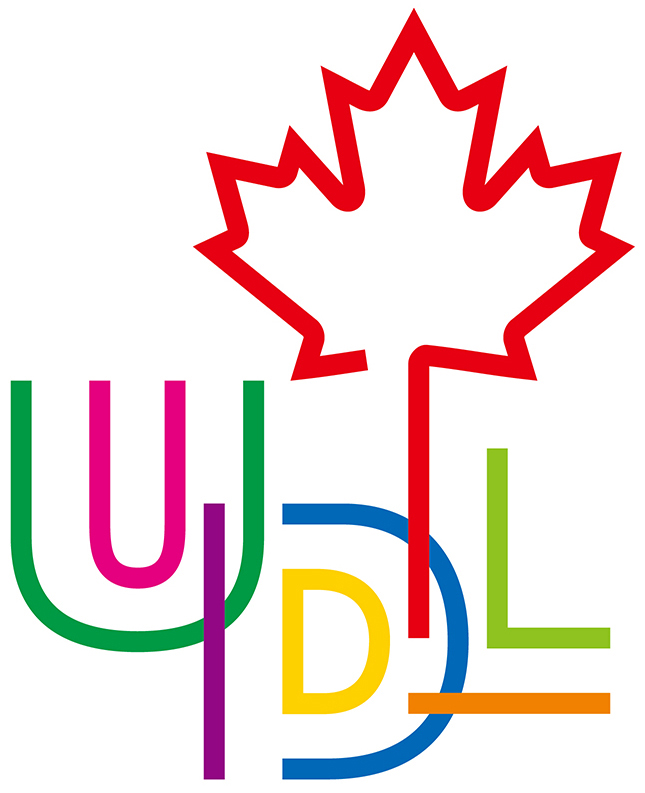 The Office for Students with Disabilities is hosting its first conference, Universal Design for Learning: Canadian Perspectives, May 20–22. This conference explores sustainable pedagogical practices and tools, empowering educators to respond to diverse learning styles found in today’s classroom.
The Office for Students with Disabilities is hosting its first conference, Universal Design for Learning: Canadian Perspectives, May 20–22. This conference explores sustainable pedagogical practices and tools, empowering educators to respond to diverse learning styles found in today’s classroom.
In advance of the conference, the Reporter spoke to presenter Roberta Thomson. Thomson received her B.Sc. in Computer Science from Acadia University and her M.A. in Educational Technology from Concordia University. She is currently working as the project coordinator on collaborative higher education UDL Faculty/Toolkit project for four Montreal-area colleges and McGill, as lead institution. She is a course instructor for the Faculty of Education at McGill in the inclusive education, diverse learners and assistive technology areas and at LaSalle College for disability related courses. Her background lies in working in the technology field as well as with individuals with disabilities across the lifespan in a multitude of settings.
Get more information about the conference.
What is the McGill Universal Design for Learning: Canadian Perspectives conference?
This conference is the first of its kind in Canada bringing together academics and practitioners from across North America and Europe to discuss, share and grow in our understanding of the UDL conceptual framework as it responds shifting perspectives in education and addresses the cognitive and emotional diversity of our student population.
The conference aims to create an original Canadian voice around the topic of UDL. It also aims to facilitate the creation of networks amongst the practitioners involved in UDL implementation and to allow for a sharing of practices and resources that are specific to the Canadian context.
What is Universal Design for Learning (UDL) and why is it important for McGill students?
UDL is a pedagogical practice that originated from the same premise as the Universal Design movement in architecture, creating environments that meet the needs of the largest diversity of users as possible.
UDL is a proactive framework for curriculum development that holds promise to provide all students equitable opportunities to learn. UDL provides a blueprint for creating instructional goals, methods, materials, and assessments that work for everyone – not a single, one-size-fits-all solution but rather flexible approaches that offer multiple pathways through curriculum for diverse student populations such as: age, gender, ethnic and cultural backgrounds, socioeconomic status, English as a second language, Indigenous persons, sexual orientation, mental health concerns, ability, disability, and learning styles
The framework is grounded in three principles of course design: 1) offering multiple means of representing course content to respond to the diverse ways students perceive information; 2) offering multiple means of engaging students with the course material; and 3) offering multiple means for students to act upon and express their knowledge of the course concepts and objectives.
This is important now as the diversity of students on post-secondary campuses is growing. There is a growing need for faculty to create learning environments that respond to this diversity in a sustainable and proactive way.
What is your background and how did you arrive at this point in your career?
After completing a B.Sc. in Computer Science and working in the business field for several years I felt the need to discover the hidden potential of computer technology to empower and uncover abilities for marginalized populations. Hence embarking on a M.A. in Educational Technology, where I first learnt of the concept of UDL and completed a case-study thesis about a student with cerebral palsy and that student’s use of technology in the classroom.
Following many years working with individuals across the lifespan with varying abilities in many settings, I began teaching in McGill’s, Educational Psychology and Counselling department with a course on Assistive Technology. The UDL framework caught my eye once again, as I discovered more closely how it aligned with removing barriers to learning not only for students with disabilities but also for the broad range of students in a classroom.
It was these experiences that lead me to my current position as the project coordinator for a Chantier three-year project funded by MESRS (La Ministère de l’Enseignement supérieur, de la Recherche, de la Science) for the development of an accessible, bilingual, user-friendly, online toolkit to facilitate the implementation of the UDL framework on campuses. This university/college collaborative partnership brings together four colleges (Centennial, Dawson, John Abbott and Marianopolis,) with McGill as lead institution. The preliminary step is to determine facilitators and stressor experienced by faculty in their use of the UDL framework.
I anticipate that the creation of the UDL Faculty/Toolkit will provide a viable support for faculty in creating more equitable learning environments. This is a shift from creating milieus based the myth of the average learner to a more realistic vision of the diverse classroom student population.
What will people take away from your presentations at the conference?
I hope participants can be affirmed in their own practices and gain insights which can support them to continue growing along their pathways in removing barriers and facilitating access to learning for all students, through the UDL framework.
During our team’s presentation – Forging a New Path: Emerging Faculty Perspectives on Universal Design for Learning – participants can learn about the Chantier three project and engage with its insights into facilitators and stressors experienced by faculty when implementing the UDL framework into their pedagogy.
Watch the video
